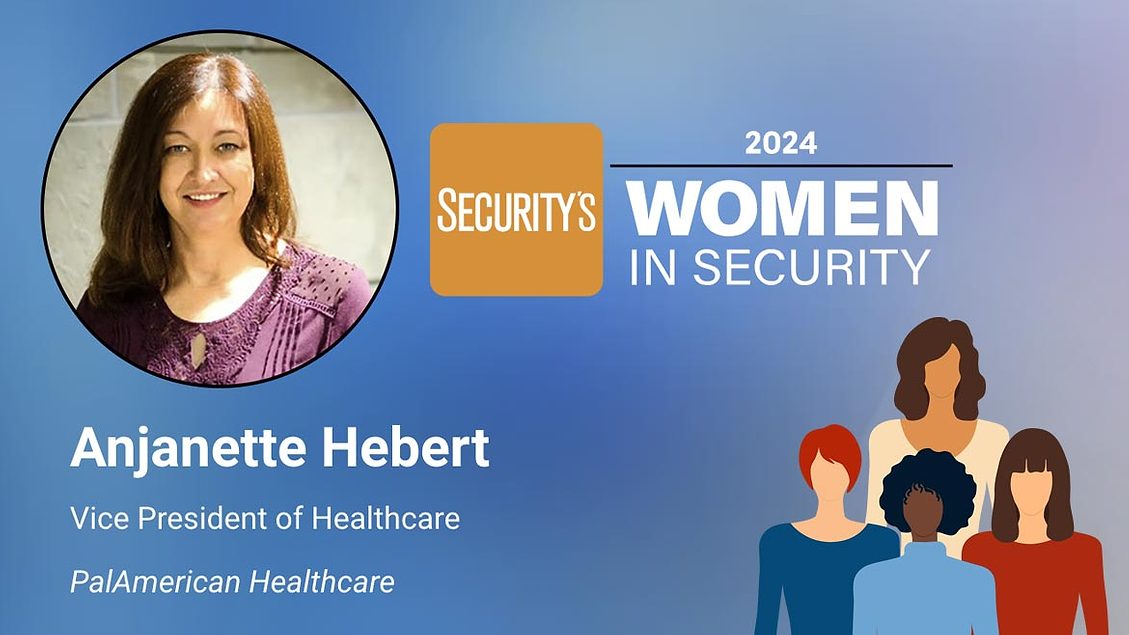- I recommend the Pixel 9 to most people looking to upgrade - especially while it's $250 off
- Google's viral research assistant just got its own app - here's how it can help you
- Sony will give you a free 55-inch 4K TV right now - but this is the last day to qualify
- I've used virtually every Linux distro, but this one has a fresh perspective
- The 7 gadgets I never travel without (and why they make such a big difference)
Anjanette Hebert | Women in Security 2024

Protecting your community during a disaster
Anjanette Hebert was born and raised in Louisiana. Her first security job was as a mall security officer, until she moved into private investigations before eventually settling as a hospital security officer.
“It didn’t take me long to figure out that I really enjoyed it; I felt like that was my place. I ended up staying in that organization for 28 years. In 2002, I took on the role as the coalition lead, a seven-parish region of Louisiana. The coalition leader’s responsibility was to coordinate all of those hospitals in their preparedness and response efforts,” Hebert says. “I think it took me maybe two weeks of working in a hospital to recognize how different it is. With security in the mall, or at a bar, or a ballgame, or whatever, everybody’s there to have a good time. They made a choice to be there. People in a hospital, for the most part, do not want to be there, whether you’re the patient, or the family, or whatever. And so there’s a lot of emotion, and it’s difficult for people to be able to control all of that comes at you at once.”
Hebert experienced a learning curve while working in healthcare, both personally and among her colleagues.
“I’ve seen young people come out of nursing school, 22-23 years old, having lived very sheltered lives. When they’re put in a hospital and experience a family who looks different than them for the very first time, experiencing grief in a way they’ve never experienced, it frightens them,” Hebert says. “They want to call security and tell security to make them stop. You have to have a security officer who understands the dynamic of that, and is able to convey that to the caregiver or the employee or whomever.”
One of Hebert’s largest challenges in healthcare came when Hurricane Katrina hit in August of 2005. A few years prior, healthcare systems in the southern U.S. had campaigned to transition anti-terrorism funding towards natural disasters, as that threat seemed far more likely.
“By the time we got to 2005, we had developed a really robust system of preparedness. We didn’t have the assets to do it, we had never practiced it, but we had a plan, and we knew our players,” Hebert says. “Where I am located in Louisiana, we did not feel the hurricane at all, we did not get a single drop of rain as New Orleans and the west side of Mississippi were being inundated. The next morning is when all hell broke loose because the first levee broke. That’s when it got really real for everybody. That’s when the coalition got activated. And then Hurricane Rita came a few weeks afterwards, which hit on the other side of Lafayette. So, Katrina came in to New Orleans, on the east side, and then Rita came in through Lake Charles on the west side. We had storms that moved on both sides of us, and eventually had evacuees from both of those that we were housing in Louisiana, in the Lafayette area,” Hebert says.
Hebert’s role shifted between facilitating communication between hospitals, to working with federal partners and evacuation teams. Hebert facilitated daily conference calls between more than 40 hospitals, ensuring bed availability and evacuation information was always up to date.
“I could tell you at any given time, that this hospital has five ICU beds and that if I had evacuees that needed an ICU bed, this is where I could put them. I could tell you that this hospital was willing to shelter people who weren’t immutable, but were too sick to be in a general shelter,” Hebert says.
“We received busload after busload — it’s making me emotional as I remember it — of people arriving. That had been literally living on the top of their roof, surrounded by water for four or five days. We had people who had refused to be rescued because the rescue that had shown up wouldn’t allow them to take their dog. They were like ‘this is my family. I’m not leaving my dog,’ so they waited for the next rescuer to come,” Hebert says. “Now it’s routine that whenever you’re setting up evacuation centers, there’s evacuation centers for pets as well, or for people to go with their pets.”
Hebert’s life and work experience helped influence her decision making. She learned to work through a crisis and plan for as many emergencies as possible.
“I was actually born in the middle of hurricane Betsy, which before Katrina was one of the biggest hurricanes we’d ever had. So I think it was like fate that I would end up doing that kind of work,” Hebert says.

